BINH DINH Heating soil to treat fungal diseases, using biological products extracted from herbs to prevent and treat plant diseases..., villagers think he is a very 'strange' person...
Soil Treatment the Japanese Way
In 2016, Mr. Trinh Hung Cong from Thiet Tru village, Nhon Hau commune (An Nhon town, Binh Dinh province) went to Japan to work as an agricultural trainee. In the land of the rising sun, Mr. Cong worked on a farm specializing in organic vegetable production in Kagawa province. Through the work process, Mr. Cong realized that the Japanese treat the soil very carefully before growing organic vegetables.
The soil is raised, fertilized with organic fertilizer, inoculated with yeast and watered to keep it moist. Then, the gardener covers the soil bed with a tarp and pumps hot steam into it. The steam is pumped out to the soil bed at a temperature of 80 - 90 degrees Celsius, enough to kill pathogens and fungi in the soil. The soil treatment lasts about 4 hours, and the gardener treats the soil twice a year.
Understanding the Japanese soil treatment process, in mid-2019, Cong returned to his hometown to invest in building an organic vegetable garden of about 1 hectare. Based on the advantage of the Central region's climate with warm sunshine lasting 9 months a year, Cong came up with a manual soil treatment process to save costs.
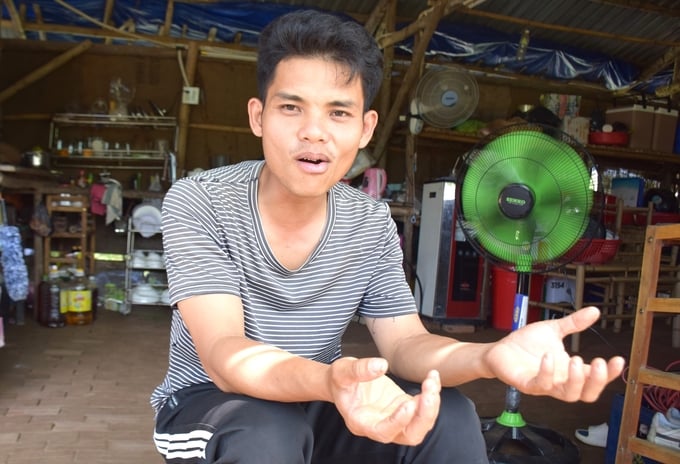
Mr. Trinh Hung Cong shares his unique way of growing organic vegetables. Photo: V.D.T.
Cong uses sunlight instead of boilers like in Japan. After plowing the soil, making beds, adding organic fertilizer and fermenting yeast, Cong waters the soil to create moisture, then covers the soil bed with 2 layers of tarpaulin to increase the temperature inside to 80 - 90 degrees Celsius. At this temperature, there will be no more pathogens and fungi in the soil, the effect is not inferior to the method of treating soil with boilers in Japan. Although treating soil manually is not expensive, it is more time-consuming than treating it with boilers.
Currently, in addition to the 1.6-hectare farm in Thiet Tru village, Mr. Cong also owns 3 other organic vegetable farms, one in Thiet Tru Bac village (Nhon Hau commune) with an area of 1 hectare, one in Dai Hoa village (Nhon Hau commune) with an area of nearly 2 hectares and one in Thiet Trang village (Nhon My commune) with an area of 1.8 hectares.
At organic vegetable farms, Mr. Cong currently processes the soil once a year in the summer to take advantage of sunlight, the processing time is from 12 to 15 days. By processing the soil manually, Mr. Cong saves from 520 to 550 million VND compared to using a boiler and stainless steel gas pipeline to process 1 hectare of land.
“In soil treatment, organic fertilizers play an important role in improving the soil. For chicken manure to become a nutrient for the soil, it must be treated so that there is no more nitrate in the manure; and cow manure must be treated so that there are no worms, only then can plants grow well,” said Mr. Trinh Hung Cong.
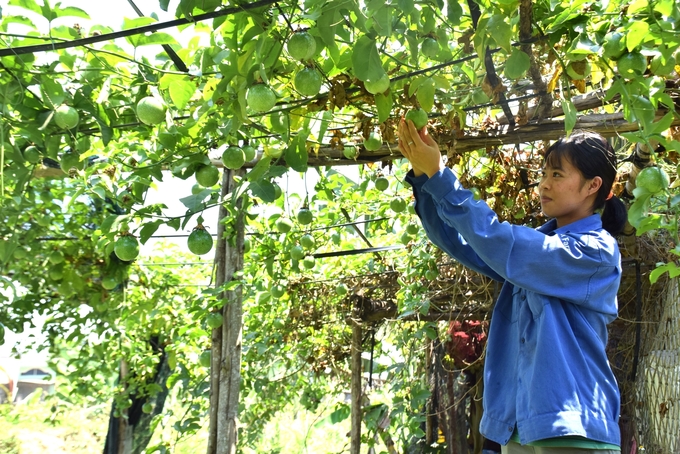
Agricultural engineer Ha Thi Thanh Thao is working at Trinh Hung Cong's organic vegetable farm. Photo: V.D.T.
Homemade pesticides "like no other"
While working at an organic vegetable farm in Kagawa province (Japan), in addition to learning the organic vegetable production process, Mr. Cong also learned the formula for making biological pesticides.
At the 1.6-hectare model farm in Thiet Tru village, Mr. Cong is currently growing 36 types of vegetables, including 12 types of spices and the rest are leafy vegetables. During the entire growth process, Cong does not use any chemical pesticides.
According to Ms. Ha Thi Thanh Thao, an agricultural engineer (graduated from Ho Chi Minh City University of Agriculture and Forestry) who is working at Mr. Cong's organic vegetable farm, if vegetables are damaged by pests, they will be treated with "traditional medicine". These are preparations extracted from herbs such as ginger, garlic, Vietnamese coriander, lemongrass, chili, custard apple seeds, the bark and leaves of the sầu đông tree, coconut residue, tobacco plants... and using Malabar spinach and okra as solvents to mix with the above preparations to treat diseases for vegetables. According to Ms. Thao, each preparation has different uses, some are specialized in treating planthoppers, some are specialized in treating worms, some are specialized in treating bugs...
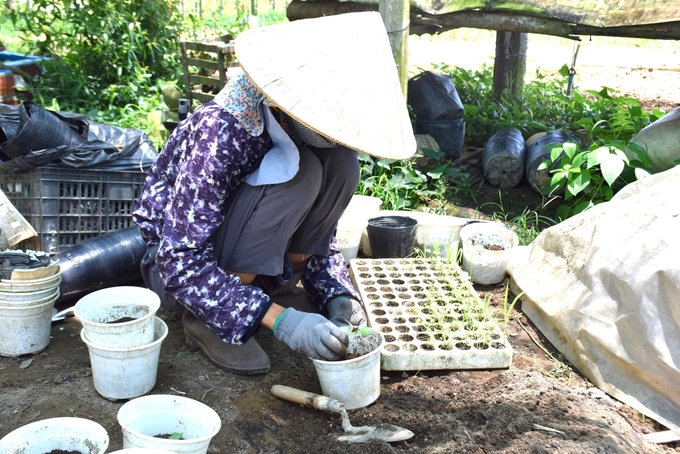
Vegetable seed production at Mr. Trinh Hung Cong's model farm. Photo: VDT.
“If vegetables are damaged by pests, use preparations extracted from chili and garlic; if vegetables are attacked by insects, use nerve stimulants extracted from the fruit of the Chinese clematis plant, tobacco, and custard apple. For the preparations to be effective, gardeners must understand the operation process of each type of pest, know when they are damaging the vegetable garden so that they can proactively attack them at the right time,” shared engineer Ha Thi Thanh Thao.
Mr. Trinh Hung Cong added that milk is very effective in treating planthoppers. Milk does not kill planthoppers, but it infects planthoppers and ferments very quickly, this yeast layer breaks down the planthopper's shell, causing them to die. Currently, milk costs less than 7,000 VND/bag, each time you only need to use 2 bags for about 14,000 VND but can kill planthoppers on an area of 1 sao of vegetables (500m2/sao). When planthoppers first appear, spray milk every 2 days, then extend to 7-10 days/time. In addition, after feeding vegetables with milk, they will grow very quickly.
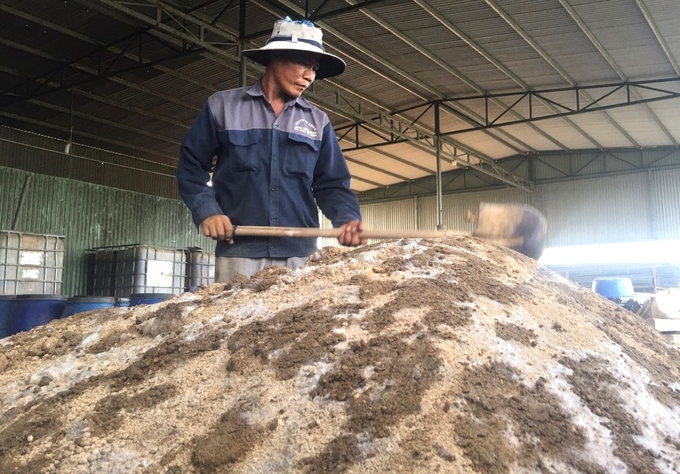
Organic fertilizers are used at 4 organic vegetable farms of Mr. Trinh Hung Cong. Photo: V.D.T.
“My organic vegetable farms are very effective in controlling flea beetles that damage cabbage leaves. Biological products extracted from cassia, tobacco, and custard apple, although they do not kill flea beetles, stimulate their nerves, paralyzing them and making them lose their ability to eat cabbage leaves,” Trinh Hung Cong explained.
“Among the many ways to get rich, agriculture is the most difficult because it involves many risks. Investing in agriculture has a long payback period and requires a large investment. Of course, not everyone who chooses to start an agricultural business fails, but the path to success is much more difficult than other industries. In return, the happiness of achieving success is equally sweet. The dedication of Trinh Hung Cong and many young farmers in Binh Dinh are examples,” commented Ms. Nguyen Thi To Tran, Deputy Director of the Department of Agriculture and Rural Development of Binh Dinh.
Source: https://nongsanviet.nongnghiep.vn/chang-trai-trong-rau-huu-co-theo-kieu-khong-giong-ai-d397033.html










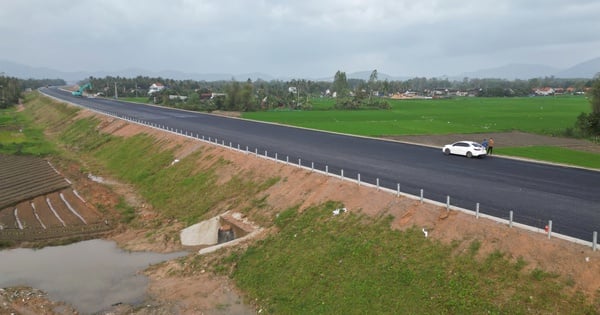

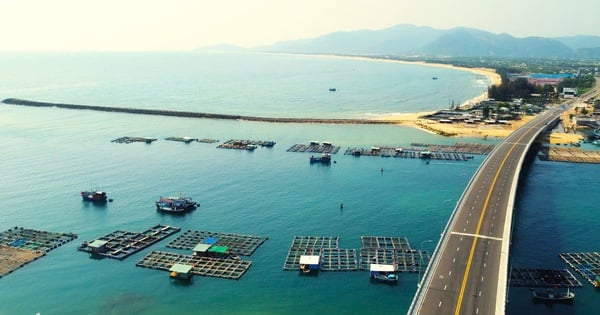


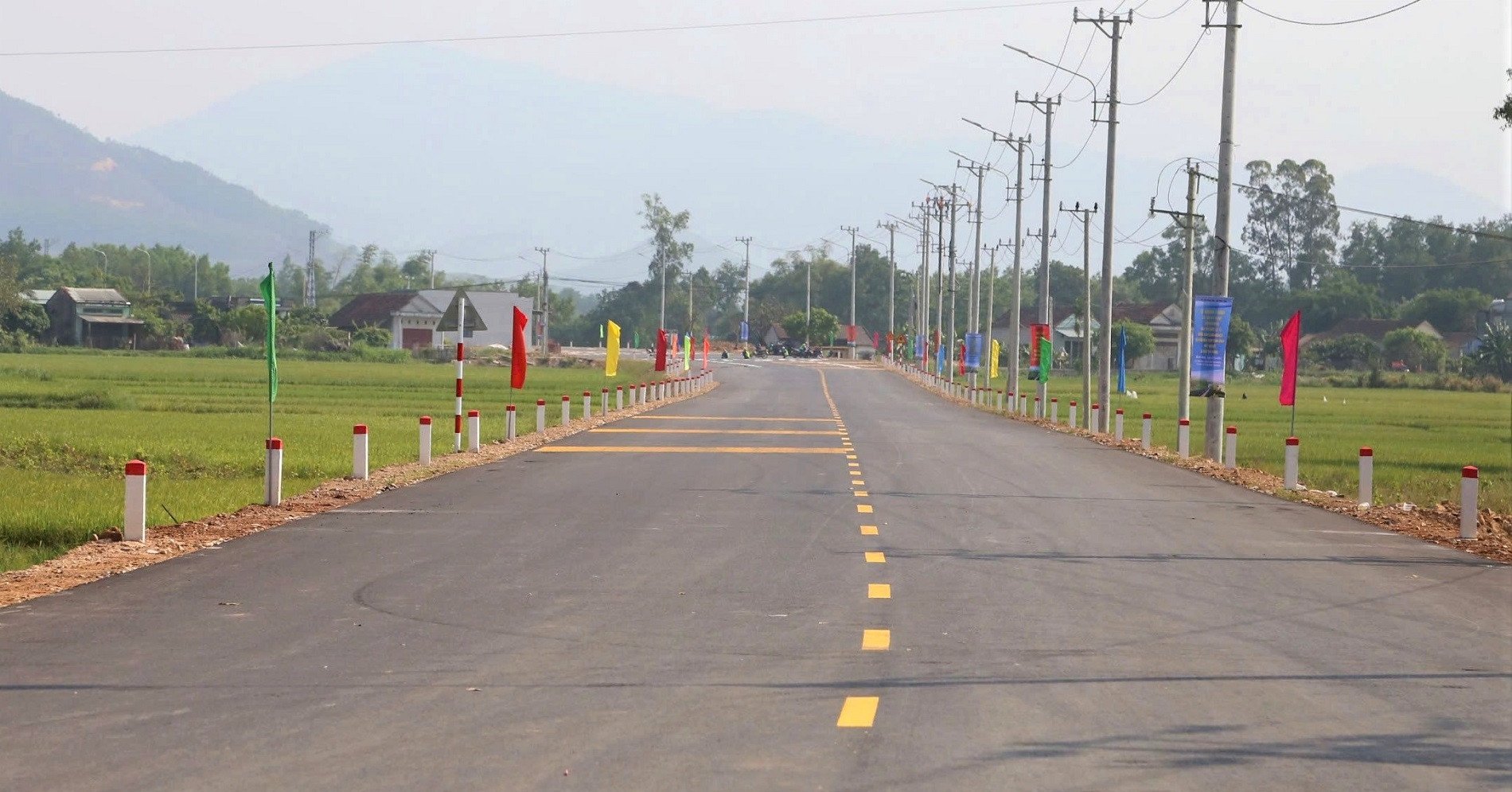






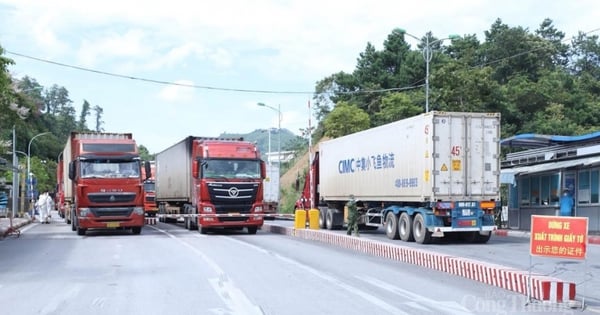

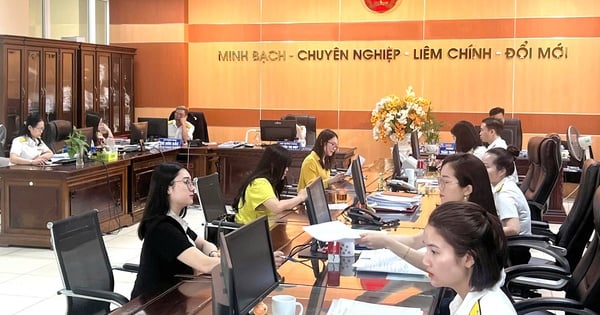



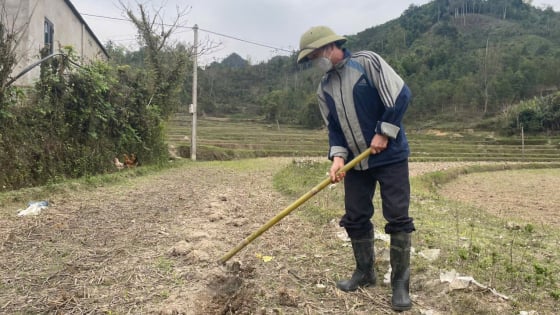
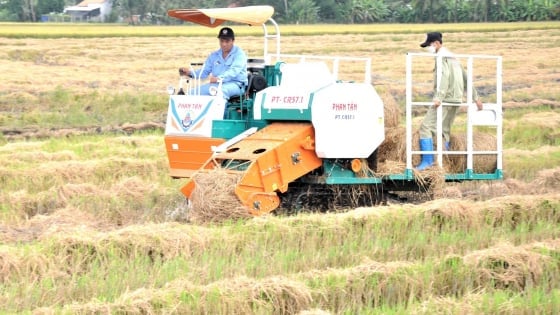

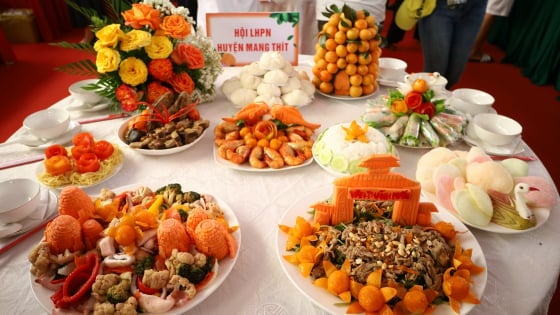
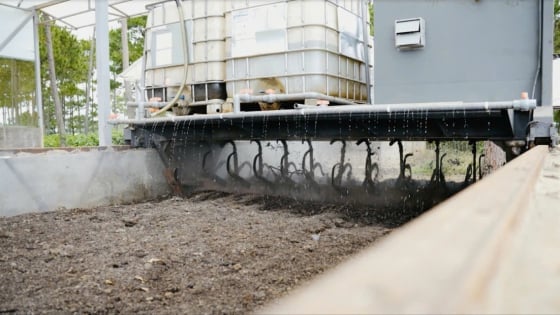
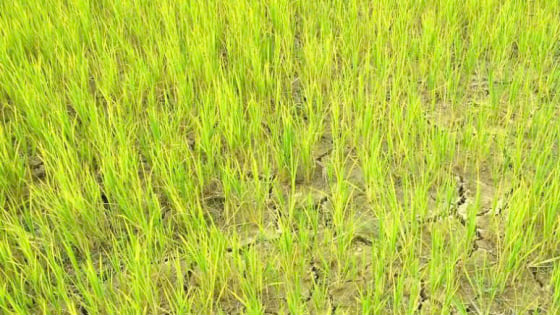
![[Photo] Closing of the 11th Conference of the 13th Central Committee of the Communist Party of Vietnam](https://vstatic.vietnam.vn/vietnam/resource/IMAGE/2025/4/12/114b57fe6e9b4814a5ddfacf6dfe5b7f)
![[Photo] Prime Minister Pham Minh Chinh chairs the Government's special meeting on law-making in April](https://vstatic.vietnam.vn/vietnam/resource/IMAGE/2025/4/13/8b2071d47adc4c22ac3a9534d12ddc17)










































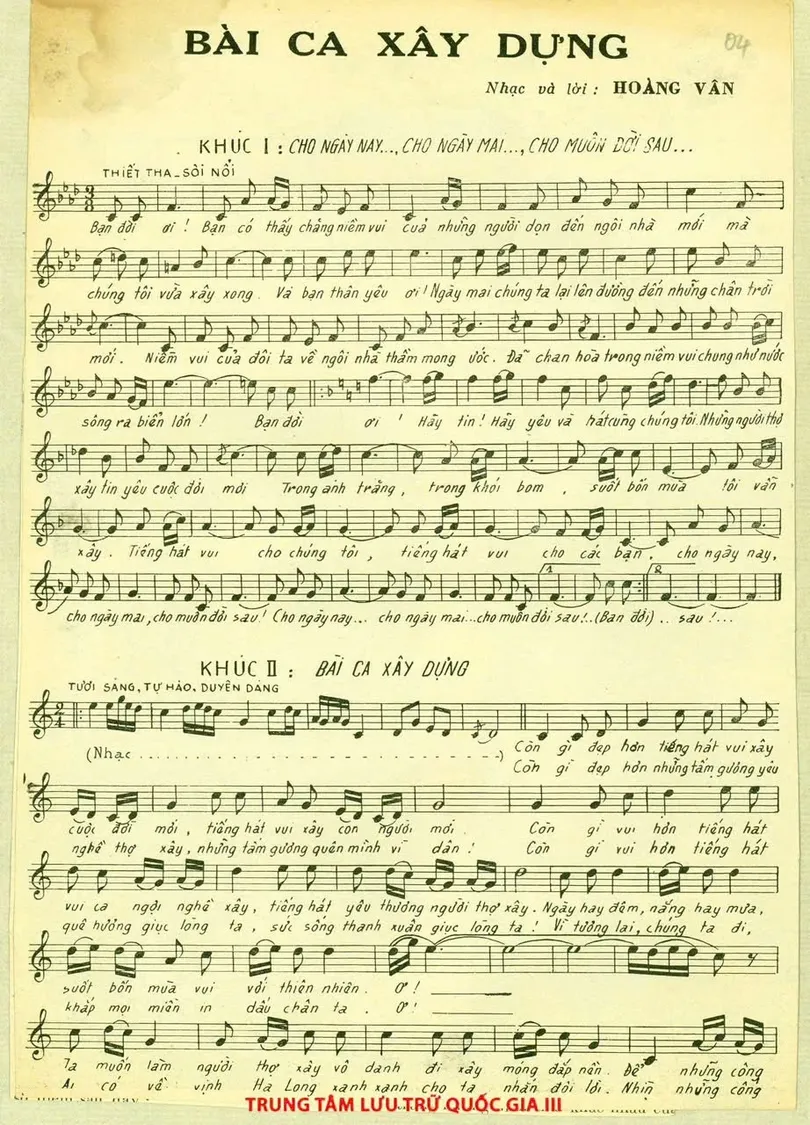

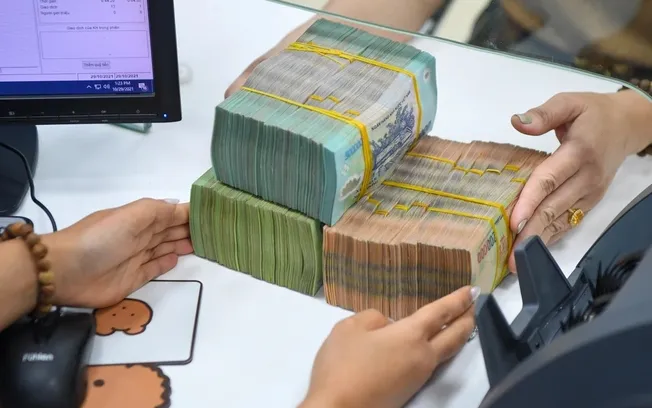



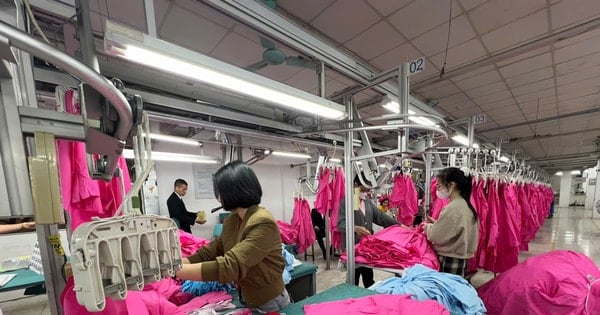














Comment (0)